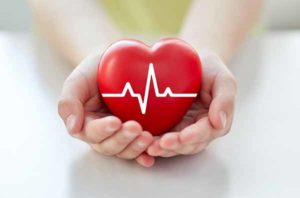
If your heart beats too fast, too slow, or skips a beat, you likely have an abnormal heart rhythm. This condition is called arrhythmia. Let us explain what happens in the heart to cause this condition, its triggers, and how to determine what kind of arrhythmia you’re dealing with.
What is an arrhythmia?
An arrhythmia is an abnormal heartbeat caused by issues in your heart’s electrical system. Most commonly, an arrhythmia occurs because the conduction pathway within your heart’s electrical system is blocked or damaged. Another reason why arrhythmias occur is due to an additional conduction pathway.
Are there different types of arrhythmias?
Yes, there are three types of arrhythmias – tachycardia, bradycardia, and irregular. Depending on which arrhythmia you are dealing with, it may occur in the upper or lower chambers of your heart. Allow us to highlight what the different types of arrhythmias mean:
- Tachycardia – your heartbeat is too quick.
- Bradycardia – your heartbeat is too slow.
- Irregular – your heartbeat is erratic.
To properly diagnose your arrhythmia, your doctor may run a test called an electrocardiogram (ECG). This test evaluates the rhythm and electrical activity of the heart.
Are there certain factors that can trigger an arrhythmia?
Arrhythmias occur when the heart tissue has been triggered. It is best to avoid known triggers, as this will dramatically help reduce the number of arrhythmias that occur. The following are examples of common triggers of arrhythmia:
- Alcohol
- Caffeine
- Certain OTC or prescribed medication
- Damaged heart tissue due to heart disease
- Diet pills
- Exercise or exertion
- Illegal drugs
- Posture change
- Stress
- Tobacco
- Viral illnesses
Our Compassionate Doctors are Arrhythmia Experts
We know it can be overwhelming to deal with arrhythmias, and we want to provide answers for you. Allow us to test, diagnose, and discuss with you the best way to treat your arrhythmia. Call us to make an appointment: 478-207-5224
Stay tuned for our three-part series on arrhythmia:
- Part 1 – Types & Triggers of Arrhythmia
- Part 2 – Is arrhythmia curable?
- Part 3 – A Spotlight on Atrial Fibrillation, aka Afib, a Type of Arrhythmia
